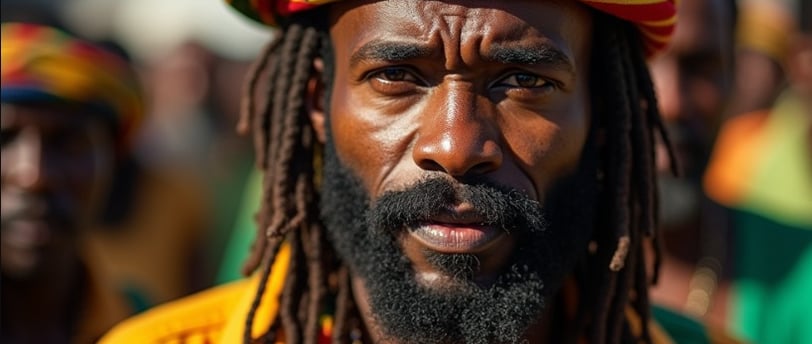Rastafari and Pan-Africanism: United in the Quest for African Liberation
Explore the deep-rooted connections between Rastafari and Pan-Africanism, two powerful movements that share a vision of African unity, empowerment, and repatriation. Discover how these ideologies have shaped black consciousness and continue to inspire global activism.
Adowan Selassie
2/21/20252 min read


Rastafari and Pan-Africanism: Connections and Shared Goals
Rastafari and Pan-Africanism, two influential movements born from the struggle against colonial oppression, share a profound connection in their quest for African liberation and unity. Both ideologies emerged in the early 20th century, drawing inspiration from a shared well of African heritage, resistance to Western domination, and the dream of a unified African identity.
Roots in Resistance
The Rastafari movement, originating in 1930s Jamaica, and Pan-Africanism, with its earlier roots in the late 19th century, both arose as responses to the marginalization of African peoples. Rastafari, influenced by Marcus Garvey's teachings, embraced the concept of repatriation to Africa, viewing Ethiopia as Zion - the promised land. Similarly, Pan-Africanism advocated for the unity of all African peoples, both on the continent and in the diaspora.
Shared Vision of African Identity
Both movements emphasize the importance of reclaiming and celebrating African identity. Rastafari promotes an Afrocentric worldview, equating blackness with African heritage and rejecting Western cultural dominance. Pan-Africanism, likewise, seeks to foster a sense of shared identity and solidarity among all people of African descent.
Repatriation and Unity
The concept of repatriation is central to both ideologies. For Rastas, this often means a physical or spiritual return to Africa, particularly Ethiopia. Pan-Africanism shares this goal of reuniting the African diaspora, though it may focus more on political and economic cooperation between African nations and diaspora communities.
Cultural and Political Influence
Rastafari has significantly impacted global culture through music, particularly reggae, spreading messages of African pride and unity. Pan-Africanism has been influential in shaping political movements and fostering cooperation between African nations. Both have contributed to raising global consciousness about African issues and rights.
Ongoing Relevance
Today, both Rastafari and Pan-Africanism continue to evolve and inspire new generations. They remain powerful forces in the ongoing struggle for racial equality, cultural preservation, and the empowerment of African peoples worldwide.
As we move forward in the 21st century, the shared goals and interconnected histories of Rastafari and Pan-Africanism offer valuable insights into the continuing quest for African unity and liberation. Their enduring influence serves as a testament to the power of cultural and political movements rooted in the African experience.
Unity
Empowering Rastafari through community and collaboration.
Culture
Growth
info@rastafariworld.org
Ghana:
Antigua & Barbuda:
USVI:
Jamaica:
Trinidad & Tobago:
United States:
United Kingdom:
Ras Tafari World © 2025. All rights reserved.
